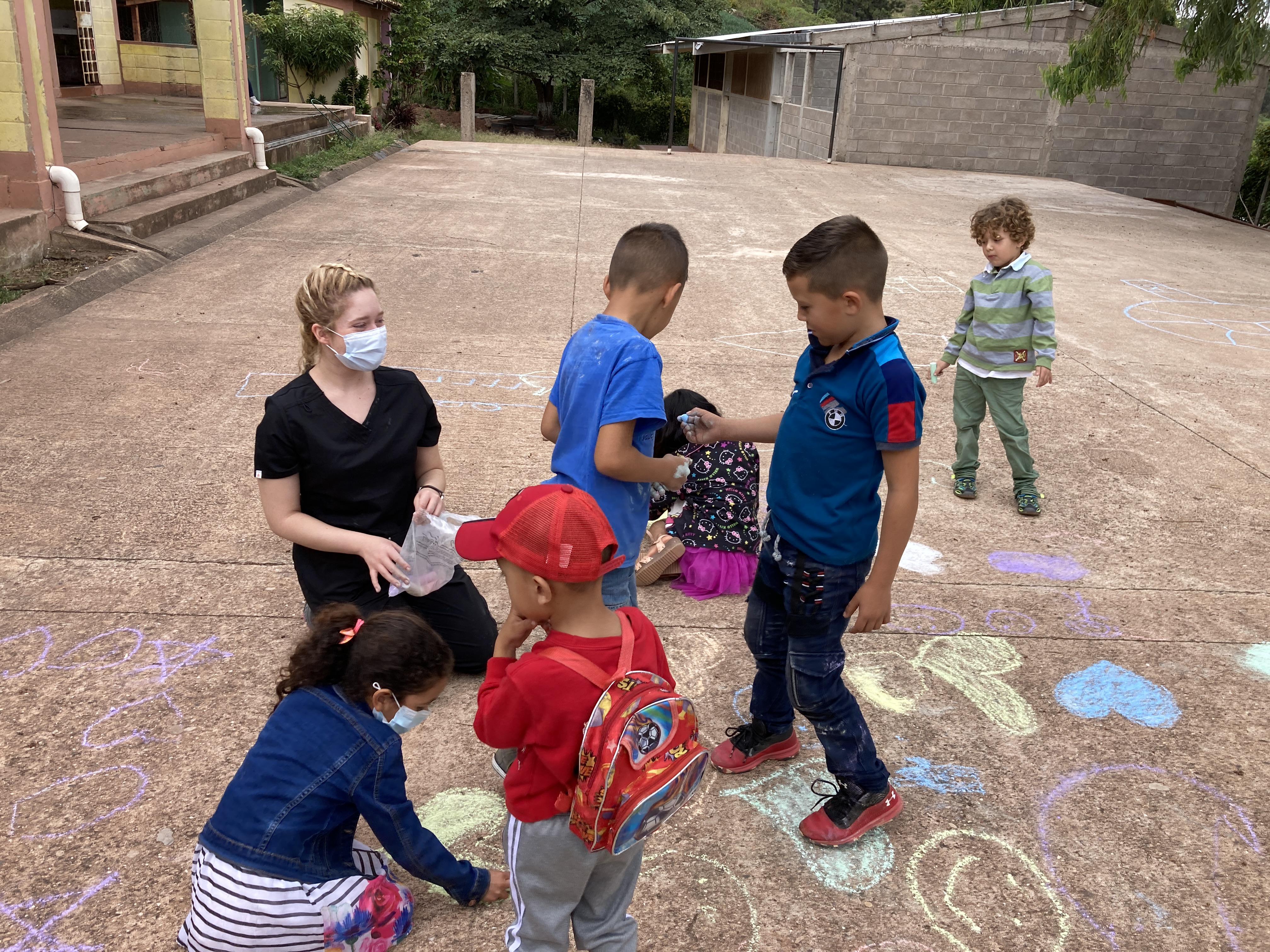DAVID HERRING
Special to The Leader

There is an indisputable fact about the healthcare and medication system in the United States: it exists. Whether this system is fair and accessible to everyone, is another matter entirely. Healthcare is something that everyone needs, but it is not a luxury that every individual has access to.
Over the 2023 J-term, Fredonia students traveled to Honduras to provide healthcare services to indigenous communities and see what, if any, healthcare system was in place in Honduras.
“I’m a 19-year-old college student, and I was their [source of] healthcare,” said Mia Piede, after reflecting on a severe pediatric epilepsy case that resulted in brain damage from extreme fevers. Piede observed the child while shadowing medical personnel of the Honduran-based Sociedad Amigos de los Niños (SAN) medical brigades.
Piede and 11 other science students discussed their experiences from the early-January medical brigade trip at the campus Science Center on Friday, Feb. 3. The students shared a range of experiences. They discussed the positive impact they had on the lives of at-risk youth, and acknowledged the harsh economic conditions so many Hondurans face with limited medicine and healthcare.
Data from the 2018 World Bank Poverty and Equity Brief indicates that 48%, or approximately 4.3 million, Hondurans live below the poverty line. Roughly 17% of the population lives on less than $1.90 per day. The latter statistic from the World Bank brief is the second worst in Latin America and the Caribbean.
The January 2023 trip was the first Fredonia medical brigade trip back to Honduras since 2020. Dr. Ted Lee started the study abroad program in Honduras for SUNY Fredonia students in 2019. Lee is a part of the Biology Department, and he earned the highest recognition the university bestows on faculty as a Distinguished Teaching Professor and the recipient of the 2014 President Award for Excellence.
Lee, who has chaired the SUNY Fredonia’s Health Professions Advising Committee for over 15 years, first experienced a medical brigade trip in 2017 when he accompanied another university’s medical brigade group. This initial trip was instrumental for Lee in advancing his vision of establishing a SUNY Fredonia study abroad opportunity in Central or South America with the purpose of allowing his students the opportunity to experience healthcare in another country.
“Each time we learn something new we can do better and get engaged with different things. So, the water work just started in the past year,” Lee said. “We’re always looking for different things to be able to do and to have a positive impact when we go down.”
The water project Lee referred to entails the installation of a water filtration system in the village of El Plan, one of the villages the group recently visited during their trip.
The nine-day J-Term trip to Honduras included Lee, 12 current students and three alumni. The group traveled to several rural regions of western Honduras, as far as nearly 200 miles from their host organization site to the village of El Plan.
This journey called for preparedness, regarding both the health and safety of the group. Prior to their departure, students took a two credit-hour class last Fall to learn about important health considerations such as CDC-recommended vaccines and malaria pills before traveling.
Though there are concerns about gang violence in Honduras, Lee has been proactive about the group’s safety by having two retired police officers accompany the group throughout the trip. Lee was also advised by the Honduran ambassador to understand the region; he made sure no one left on their own during the trip and recognized the commitment SAN has for his group’s safety.
Given this proactiveness, there have been no safety issues during these trips thus far.
“You can’t explain this experience to its full potential to somebody else who didn’t also experience it,” Piede said.
Piede, a sophomore double-majoring in psychology and biology, shared, like so many of her classmates, how extraordinary and life-altering the medical brigade trip was.
Piede was in awe of how, despite poor living conditions, Hondurans would rally around one another, particularly upon hearing of health concerns about family and friends. Piede witnessed the kindness villagers expressed when one patient was recovering from surgery and the locals brought food to have a fiesta to raise the patient’s spirits.
Piede shared her endearment and inspiration for Dr. Omar, a Honduran doctor she worked with who frequently said “mi amor” (my love) to his patients. “[Dr. Omar is] honestly the reason I want to go into medicine,” Piede said.
Lee reads about the rewarding experiences his students have from journaling during the trip. “Most [students] in fact state they don’t want to come back to the states because they’re having such a good time,” Lee said.
Lee recalled learning from a student that they weren’t initially a “kid person” but that spending so much time with the children of SAN made the student reconsider. Lee shared the student’s experiences to illustrate how students in education, sociology or psychology might find the Fredonia Honduras Medical Brigades study abroad program particularly exciting.
However, Lee emphasized that students are not required to be pre-health science students to be eligible for this study abroad opportunity.
Lee is pleased for his students to have the opportunity to share their medical brigades experiences with the campus community. He appreciates the support from administration and faculty, and finds the work in Honduras very meaningful and rewarding which is easy to glean from the Honduras Medical Brigade site.
